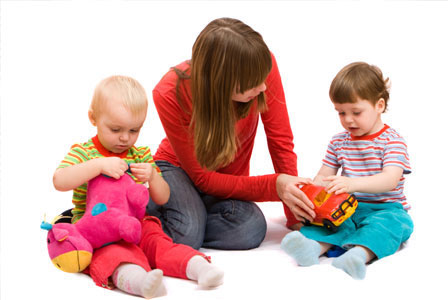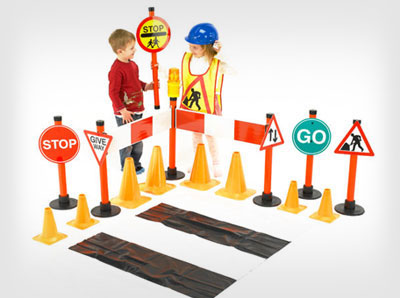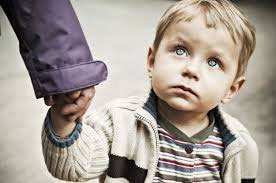Children are often victims of accidental poisoning at home. Following a step by step procedure of dealing with this situation rather than panicking is essential for minimising risk. Here is how to recognise if your child is affected. For most people, the home is a sanctuary. It is a place where you trust your child will be safe from all harm. However, what you do not realise is that your home can also be a very dangerous place sometimes. Studies have shown that most childhood accidents occur in the home itself. Half of these accidents are due to accidental poisonings. In this articleAccidents and your childHow poisoning occursPotential warning signsTreating poisoning accidentsAccidents and your child Your child is naturally curious about the world around him. You will have noticed how he loves to tug at objects and put them in his mouth. This is his way of exploring new objects. However, at this young age, your child does not understand the concepts of danger and caution. You have to keep an eye on him and ensure that he is not hurt. How poisoning occurs Poisoning can occur when your child accidentally is exposed to harmful household substances. These could range from medicines to household cleaning supplies. Most poisoning accidents occur in children below five years. This is largely because young children spend almost all their time at home. In comparison, older children are at school for at least half a day. Accidents take place because an object fascinates a child. Chemicals and other substances are often stored in brightly coloured containers. These containers are attractive to the child and hold his attention. If he somehow manages to open the container, he often seeks to consume the substance inside. Potential warning signs The real danger in an accidental poisoning is that your child cannot tell you if he has been poisoned because he himself does not know it. The only way you can determine if your child is a victim of poisoning is by your own vigilance. Most substances are fast acting and will display their effects a few hours after they have entered your childs body. Remember that not all poisonings are due to ingestion alone. Some substances can also be harmful if your child inhales their fumes or if they fall on your childs skin. As a parent, your primary concern is how to detect a potential poisoning. Most poisons affect the nervous or digestive system. If your child was perfectly fine a few hours ago and is now becoming disoriented, it is possible that he has been exposed to a harmful substance. Besides disorientation, other signs of concern are the child feeling drowsy much before regular nap time, rolling his eyes unnecessarily, and not being able to follow a moving object with his eyes. Vomiting is another classic sign of poisoning, as the body itself will try to expel the poison. However, since vomiting is also associated with a host of other ailments, it is not easy to determine poisoning from only this symptom. Some external signs can also determine poisoning. Obvious signs include stains or unknown substances around your childs mouth or teeth, a strange smelling breath, and burn or scorch marks on the lips or around the mouth. Even if there are no obvious signs, treat the presence of an open or spilled bottle of medicines as a case of poisoning. This is because some drugs take a long time to produce any identifiable symptoms. Treating poisoning accidents If your child has been poisoned, he requires immediate medical attention. The first step to helping your child is for you to remain calm. If you know what your child has been poisoned by, read the bottle label. Most household chemicals have basic first aid instructions on the containers label itself, in case of accidental contact or ingestion. The next step is to contact your childs doctor and tell him what has happened. If the poisoning is serious, your child may require hospitalisation while the poison is flushed out of his body. Mention details like your childs age, weight, height, poison, mode of contact (consumed, inhaled, etc.), and if the child has vomited. Take the container containing the remaining poison to the hospital in case any further tests need to be conducted. Most cases of poisoning may make your child ill but will not require extensive hospitalisation. Knowledge of basic first aid can help to stabilise your childs condition and protect him from further harm.
Children are often victims of accidental poisoning at home. Following a step by step procedure of dealing with this situation rather than panicking is essential for minimising risk. Here is how to recognise if your child is affected. For most people, the home is a sanctuary. It is a place where you trust your child will be
safe from all harm. However, what you do not realise is that your home can also be a very dangerous place sometimes. Studies have shown that most childhood accidents occur in the home itself. Half of these accidents are due to accidental poisonings.
Accidents and your child
Your child is naturally curious about the world around him. You will have noticed how he loves to tug at objects and put them in his mouth. This is his way of exploring new objects. However, at this young age, your child does not understand the concepts of danger and caution. You have to keep an eye on him and ensure that he is not hurt.
How poisoning occurs
Poisoning can occur when your child accidentally is exposed to harmful household substances. These could range from medicines to household cleaning supplies. Most poisoning accidents occur in
children below five years. This is largely because young children spend almost all their time at home. In comparison, older children are at school for at least half a day.
Accidents take place because an object fascinates a child. Chemicals and other substances are often stored in brightly coloured containers. These containers are attractive to the child and hold his attention. If he somehow manages to open the container, he often seeks to consume the substance inside.
Potential warning signs
The real danger in an
accidental poisoning is that your child cannot tell you if he has been poisoned because he himself does not know it. The only way you can determine if your child is a victim of poisoning is by your own vigilance. Most substances are fast acting and will display their effects a few hours after they have entered your child's body. Remember that not all poisonings are due to ingestion alone. Some substances can also be harmful if your child inhales their fumes or if they fall on your child's skin.
As a parent, your primary concern is how to detect a potential poisoning. Most poisons affect the nervous or digestive system. If your child was perfectly fine a few hours ago and is now becoming disoriented, it is possible that he has been exposed to a harmful substance. Besides disorientation, other signs of concern are the child feeling drowsy much before regular nap time, rolling his eyes unnecessarily, and not being able to follow a moving object with his eyes. Vomiting is another classic sign of poisoning, as the body itself will try to expel the poison. However, since vomiting is also associated with a host of other ailments, it is not easy to determine poisoning from only this symptom.
Some external signs can also determine poisoning. Obvious signs include stains or unknown substances around your child's mouth or teeth, a strange smelling breath, and burn or scorch marks on the lips or around the mouth. Even if there are no obvious signs, treat the presence of an open or spilled bottle of medicines as a case of poisoning. This is because some drugs take a long time to produce any identifiable symptoms.
Treating poisoning accidents
If your child has been poisoned, he requires immediate medical attention. The first step to helping your child is for you to remain calm. If you know what your child has been poisoned by, read the bottle label. Most household chemicals have basic first aid instructions on the container's label itself, in case of accidental contact or ingestion.
The next step is to contact your child's doctor and tell him what has happened. If the
poisoning is serious, your child may require hospitalisation while the poison is flushed out of his body. Mention details like your child's age, weight, height, poison, mode of contact (consumed, inhaled, etc.), and if the child has vomited. Take the container containing the remaining poison to the hospital in case any further tests need to be conducted.
Most cases of poisoning may make your child ill but will not require extensive hospitalisation. Knowledge of basic first aid can help to stabilise your child's condition and protect him from further harm.

































